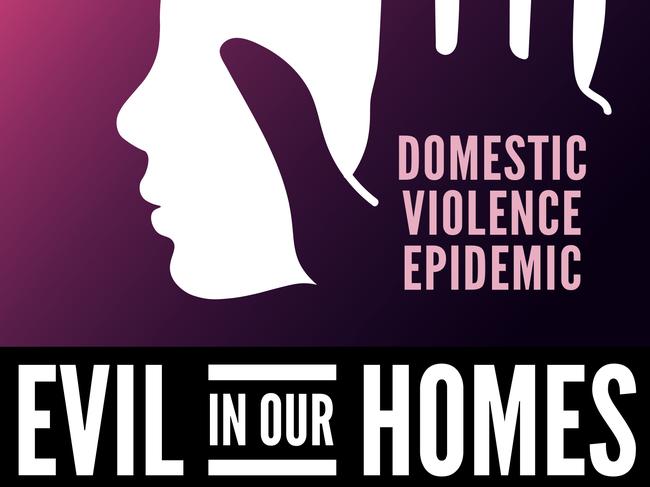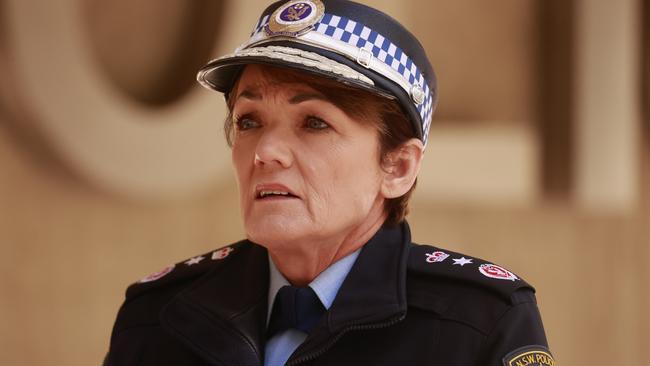Evil In Our Homes: NSW Police demand new powers to treat DV offenders like bikies, terrorists
NSW Police put domestic violence offenders in the same category as bikies, mobsters and terrorists. Now, they want to be granted powers to officially treat abusers that way under the rule of the law so survivors can stop living in fear.
NSW
Don't miss out on the headlines from NSW. Followed categories will be added to My News.
The state’s top cops want the power to treat the worst domestic violence offenders as if they were bikies, mobsters or terrorists.
Experts agree apprehended violence orders “are not worth the paper they are printed on” when it comes to the most dangerous perpetrators, prompting NSW Police to look at other ways to stop them.
Shocking figures have revealed there were nearly half as many AVO breaches resulting in arrests (21,342) as there were AVOs taken out (47,869) last year.
While experts agree AVOs play a key role in protecting domestic violence victims, they say more needs to be done to stop high-risk offenders whose history has shown they will stop at nothing but death.
“These people we are talking about have the criminal minds of terrorists, organised criminals and other high risk offenders and need to be treated as such,” NSW Police Commissioner Karen Webb said.
“We are working to find ways to stop high-risk offenders in their tracks, to make it impossible for them to commit acts of violence.”
One proposal is to introduce orders similar to Serious Crime Prevention Orders, which are imposed by the Supreme Court and carry much more aggressive enforcement capabilities and harsher penalties, including up to five year in jail for breaches.
The maximum penalty for breaching an AVO – which is imposed at a local court level – is a $5500 fine, or two years imprisonment, or both.
The crime prevention orders were introduced in 2013 and are primarily used to disrupt outlaw motorcycle gangs and key players in suspected organised crime.
Domestic Violence expert and Domestic Violence NSW senior justice policy officer Dr Bridget Mottram said AVOs were just one tool in the arsenal against offenders.
“AVOs work on people who are scared of the piece of paper, scared of losing access to their children, losing their partner, their family, their home, their job,” Dr Mottram said.
“Usually we see when they respect the law, then an AVO works.
“They can be less effective on high risk offenders with long criminal histories. These people are not so deterred by an AVO when the consequences don’t particularly faze them.
“That’s where the other tools in the arsenal need to come in. We also need to acknowledge system abuse and how AVOs can be used as a weapon by defendants who can afford a good lawyer.
“It can be another tool to manipulate and intimidate, flying close to the wind but never quite breaching.”
Commissioner Webb said her officers were dedicating time and resources to identify and target high risk offenders.
“We need to prioritise all offenders but in terms of proactive policing our focus needs to be on high-risk offenders and looking seriously at some of those behaviours we are seeing, including strangulation and shocking for example and what we can do about that.
“At the moment we have high risk offenders subject to electronic monitoring but we are also working with other departments and experts to look at legislation changes around high risk offenders.”
Dr Mottram said domestic violence was a complex problem and the system failures were equally as complex.
“The family court system is most certainly one of the touch points, victims are terrified of child protection removing their children, there can be mistrust of police or courts, then the court hands down soft sentences, and all of these things are happening in silos.
“Add to that cost of living, you can’t escape violence if there is nowhere to escape to.”
Domestic Violence NSW works closely with NSW Police to “break down silos and make sure systems and people are talking to each other” and victim-survivors are at the forefront.
“We need to make sure that everything police are doing is victim-centric and victim informed, but we acknowledge that can be challenging at times.
“Police have a job to do and a lot of the time the action they have to take might be in the victim’s best interest but not what the victim-survivor wants.
“It’s a really hard balance to strike in making sure they have a voice and autonomy, but that systems are doing what they need to in order to keep victims safe. This is where our domestic and family violence specialist service sector comes in as experts in that fine balance.
“We have to also understand DV is really complex and it can take a lot to come out and speak up. There are still feelings of love and sadness, and there’s significant elements of control, coercion and fear.”
Dr Mottram said the fear was entirely valid because when victim-survivors seek help and are thinking about leaving a violent relationship, that is when they are at most risk.

“But there are amazing, dedicated people and services who will help,” she said.
“We do recognise there it can take time for someone to get to the point where they’re ready, safe and able to leave a violent relationship, but help is available no matter what stage they’re at … specialist services will meet victim-survivors wherever that is.”
Justice is working with police to look at other complexities, including the court backlog of DV cases.
Domestic Violence now represents 140,000 incidents in NSW and around 36,000 matters in the courts.
Police concede clearing cases through the courts is complicated and labour-intensive.
They are working with courts administration to develop ways to reduce domestic violence hearings that do not involve violence and stalking and intimidation components.

There is also the battle against public perception. While most Australians accept DV is a massive problem, with 14 deaths already this year, most think it doesn’t happen in their backyard.
“Research shows 91 per cent of people concede violence against women is a massive problem but that drops to 41 per cent when asked if it happens in your suburb,” Dr Mottram said.
“It’s that idea of: ‘Oh no, not in my block of units’.”
The belief that men and women were equally as vulnerable to domestic violence was also alarming, she said.
“We have seen a very concerning spike in the amount of people who mistakenly think men and women commit the same amount of intimate partner violence. That’s nearly doubled since 2009 and it’s not accurate.”



